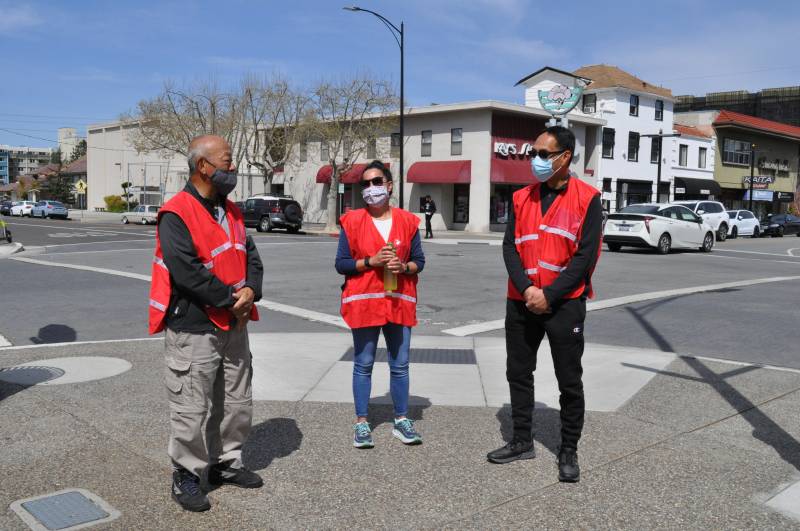That’s the same advice Saito is giving elderly Asian residents in San Jose’s Japantown. Both Louie and Saito’s programs focus on de-escalation — an effort to reduce tensions and avoid conflict. But volunteers are also trained to call the police when it becomes clear that a situation is escalating.
“During training, we explicitly tell our volunteers we are looking for unusual or suspicious behavior,” Saito said. “To make people feel welcome, I encourage [volunteers] to introduce themselves, explain what we are doing, and ask them if they have any questions or if there is anything we can do for them.”
Similar patrol programs have started in Oakland and some other cities across the Bay Area. The San Jose Police Department has also increased patrols in Japantown and in Little Saigon, one of California’s largest Vietnamese American communities.
In an effort to spread the word about Japantown Prepared among San Jose’s senior community, Saito is working with the Yu-Ai Kai Senior Center in Japantown, which serves about 700 seniors a week.
“The seniors and majority of the AAPI community are feeling on edge with their personal safety as AAPI hate crimes are in the news daily,” said Jennifer Masuda, the center’s executive director.
“I hope the patrol will give our elders the confidence and freedom to leave their home; to know it is safe to pick up their lunch, grocery shop, go to church — basically to do what they want,” Masuda said.
Since Saito recently started his patrol program, he says his email inbox has been overflowing with requests to volunteer.
“I have over 330 emails of people interested in finding out about [the program],” he said. “There’s a lot of really good people out there who care about what’s going on, and they want to do something about it.”

